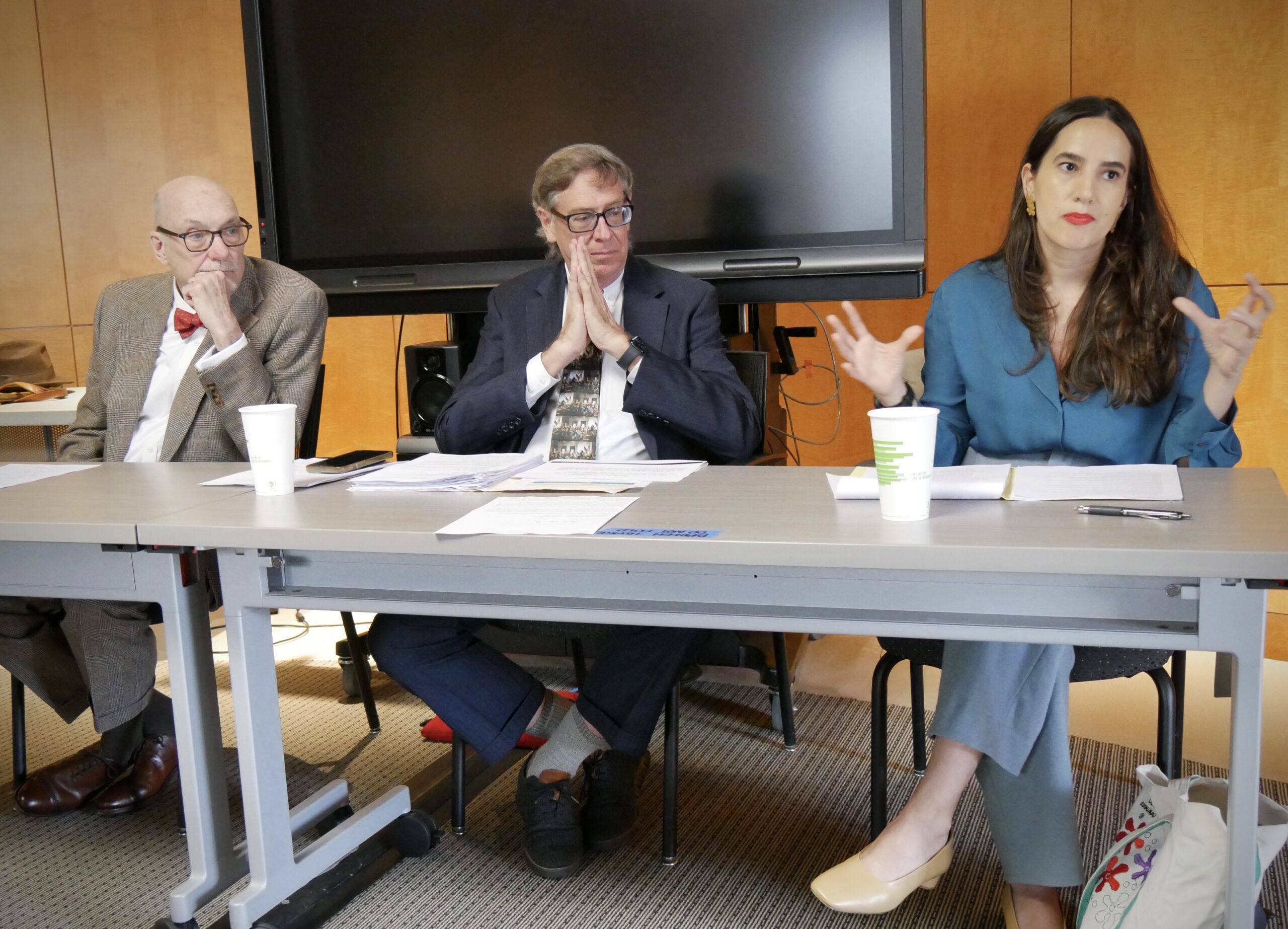UC Law SF Professors Analyze First 100 Days of Trump Administration

UC Law SF Professors Matt Coles, Rory Little, and Natalia Ramírez Lee discuss the legal and constitutional implications of the Trump administration’s early actions in a panel discussion at the San Francisco Public Library in April.
Three UC Law San Francisco professors reflected on the first 100 days of the Trump administration during a discussion at the San Francisco Public Library on April 16. They covered sweeping changes in immigration policy, efforts to shut down federal agencies and cut spending, and impacts on civil rights, labor protections, and the rule of law.
Professor Rory Little highlighted the administration’s expansive use of executive power—issuing more than 120 executive orders in just over three months. He noted that the orders have triggered over 100 lawsuits and dozens of court orders blocking some of the administration’s actions.
“I think what it shows is that the federal judicial branch is doing its best to maintain some sort of rule of law,” he said.
Little pointed to attempts to eliminate birthright citizenship and impose wide-reaching tariffs as likely unconstitutional. He also raised concerns about apparent defiance of court orders in deportation cases and President Donald Trump’s recent public suggestion that he might seek a third term, which Little said would violate the Twenty-Second Amendment.
Professor Matt Coles addressed due process concerns about recent deportations, citing cases where individuals alleged to be gang members were deported without hearings. He voiced alarm over efforts to defund universities and research institutions, which he argued sidestep Congress’ constitutional power over spending. He also described attempts to deport noncitizens for criticizing Israeli military actions as an affront to the First Amendment.
“The First Amendment and the due process clause both apply to anybody who’s in the United States,” Coles said. “The power to deport is not the power to imprison. The power to deport is not the power to deport at the president’s whim.”
Professor Natalia Ramírez Lee focused on the changing landscape for workers. She detailed the administration’s push to curb diversity, equity, and inclusion (DEI) efforts and limit collective bargaining for federal employees. She also discussed aggressive immigration enforcement targeting industries that rely heavily on undocumented labor and efforts to restrict immigrants’ access to the benefits of having a Social Security number.
“The Trump administration has prioritized workplace immigration enforcement, but these policies are coming at a steep economic and human cost,” she said.
The discussion, held in a 30-seat room with almost every seat taken, showcased how UC Law SF professors share their knowledge and insights to enhance public understanding of legal issues tied to government actions.